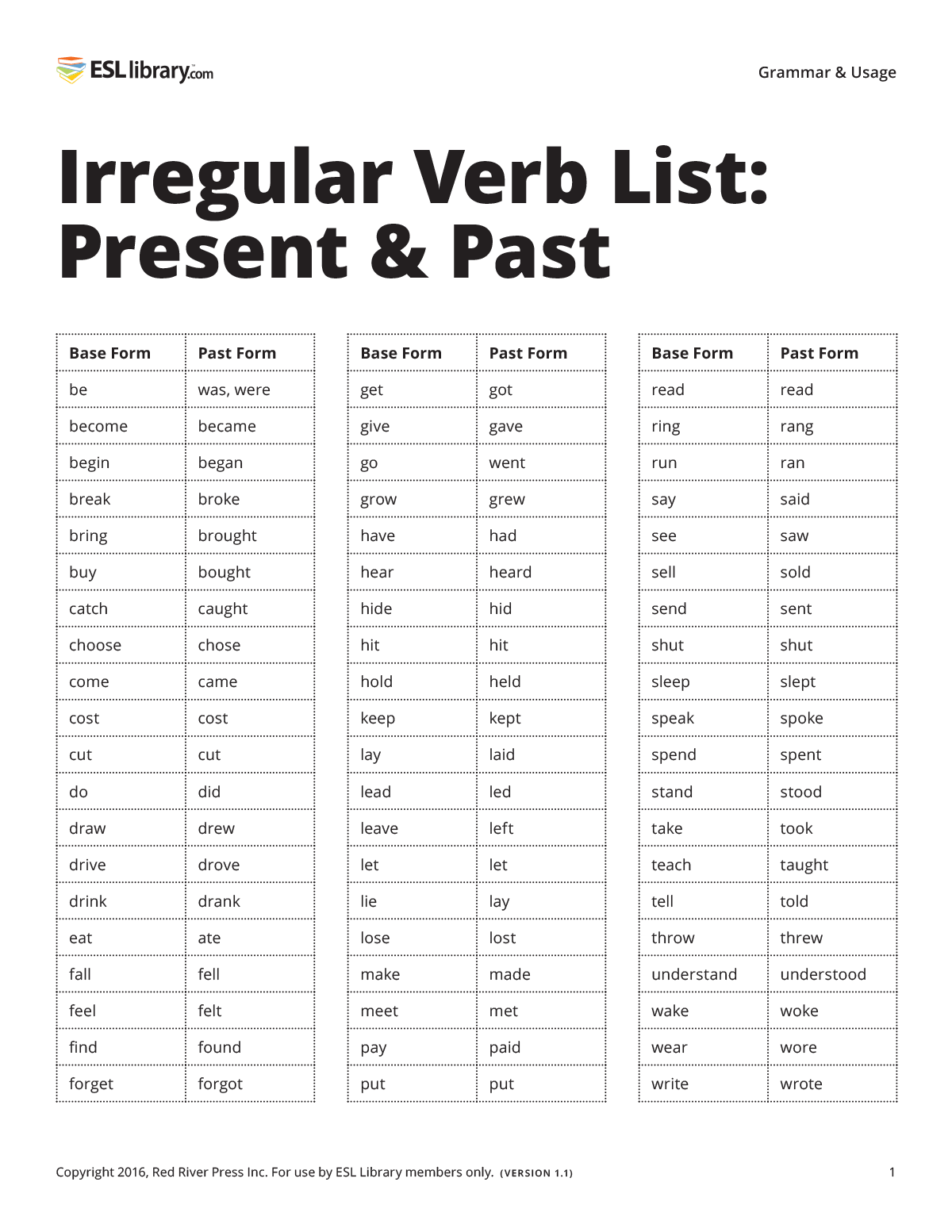

Sentences with Irregular Verbs: Past Perfect These are example of sentences with irregular verbs Sentences with Irregular Verbs: Simple Past These are some examples of irregular verbs in English pay
Verbs like "bring," "buy," "fight," and "think" change to "brought," "bought," "fought," and "thought." These verbs add "ght.List of Irregular Verbs in English: P to Z. Other verbs add "d," sometimes with an extra vowel or vowel/consonant changes, such as "pay" ("paid"), "say" ("said"), "sell" ("sold"), "tell" ("told"), "hear" ("heard"), and "stand" ("stood"). Some verbs add "t" at the end, often exchanged for a vowel or consonant elsewhere in the word. 
Some verbs change vowels, such as "sit" ("sat") and "get" ("got").
These verbs fall into several patterns. For "keep," you'd say, "I keep this with me all the time" (present), "I kept it with me all the time" (past tense), or "I have kept it with me the whole time" (past participle). For example, "keep" and "shoot" are examples of these verbs. However, they stay the same when moving from the past tense to the past participle. Other verbs change when going from present tense to past tense. Look for verbs that stay the same in the past tense and past participle. X Research source For instance, British English adds "t" at the end of more verbs to make them past tense, such as "dreamt." Try to focus on one or the other when you're learning irregular verbs. Some irregular verbs are different in American and British English. The past tense is "began," while the past participle is "begun." Irregular verbs don't follow any specific patterns. For instance, "to begin" is an irregular verb. An irregular verb doesn't follow this rule. 
The past participle is what usually follows "have" or "has" in English, such as "I have wanted."
For instance, a regular verb is "to want." To make it past tense, you add "-ed" to it, making it "wanted." "Wanted" is also the past participle. The standard rule is to add "-ed" to a verb to make it past tense. An irregular verb is any one that doesn't follow the standard rule of making a verb past tense. 
To truly learn irregular verbs, you need to first understand what makes a verb irregular.








 0 kommentar(er)
0 kommentar(er)
